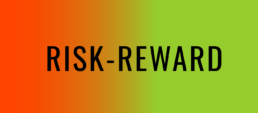Should I Rent My Items or Not?
One of the most important and basic financial principles that can be used to consider if you should rent your items or not is called Risk-Reward. How does this financial principle apply to decide if you should rent your items or not? If you are concerned about something happening to your items such as getting damaged during a rental, a risk-reward analysis will help you think through what decision to make based on your risk tolerance in conjunction with your potential financial gain.
What is a Risk-Reward Analysis?
A risk-reward analysis takes into consideration both your financial wellbeing (what makes financial sense?) and risk tolerance (what can you handle emotionally?). A risk-reward analysis is one way to help you understand the main reasons why you should or should not rent your items to others. The general idea behind risk-reward, the more risk you take, the more potential for reward. The less risk you take, the less potential for reward.
How to Conduct a Risk-Reward Analysis?
The following questions will help you think through whether renting your items is right for you.
- If your item is damaged on the first rental, how devastating would that be?
- How many rentals will it take to replace your item if something happened to the item?
- What rental price will make it worth taking the risk of renting your item to someone else?
- What other benefits will come from taking the risk of renting your item to someone else? (i.e. environmental, community relations, etc.)
- Have you already participated in other peer-to-peer marketplaces such as Airbnb or Uber? What has been your overall experience?
Example of Risk-Reward Analysis
For example, if you rent an item twenty times at $100 each time ($2,000), the initial cost of the item was $1,000, and the replacement cost is currently $600, Is the risk of the item being damaged still a major concern? Alternatively, the item would most-likely remain sitting idle and generate $0 income and will only continue to decrease in value over time. Would this be worth taking the risk of something happening to your item?
Note: Plug-in different #s to create different scenarios to help determine your risk tolerance.
Ideas for Getting Started
The following are some practical ways you can get started with renting your items while lowering your initial risk.
- Start by renting items that are not near and dear to your heart. Items that if something happens to them, you would not be devastated or overly concerned.
- Start by renting items that would not cause financial hardship if you had to replace the item.
- Research to see if others are having mostly good or bad experiences with renting their items.
- Consider how the rental industry works. If most items that were rented got damaged or destroyed during a rental, how would a rental company stay in business?
Note: If you are not comfortable yet with the idea of renting your items, consider starting small and add more items as you gain more experience. What items are you comfortable testing the waters with?
Summary
When thinking about what items to rent to others in your local community or those traveling to your city, you should definitely conduct a simple risk-reward analysis. Each person has a different risk tolerance. Therefore, depending on your risk tolerance, the value of the item, the emotional attachment to the item, use a risk-reward analysis to consider both the potential financial gain and risk factors. A risk-reward analysis is one good way to determine what items you feel comfortable renting vs. having them sitting idle and producing no value whatsoever. Rent Items is committed to helping owners of items reduce and mitigate risk, but each individual in our peer-to-peer rental community should be comfortable with the level of risk they are taking when renting their items.
If you have any questions or comments, please feel free to post them below. We would love to hear from you. If you would like to start renting your items, go to https://preview.company.rentitems.com.
RentItems is a peer-to-peer rental marketplace. We help individuals and local business owners share assets they own by renting it to those in their local community or traveling to their city. Take items sitting unused in your garage, basement, self-storage unit, retail store, or warehouse and put it to better use. Become more sustainable by joining the sharing economy today and register at Rentitems.com.

